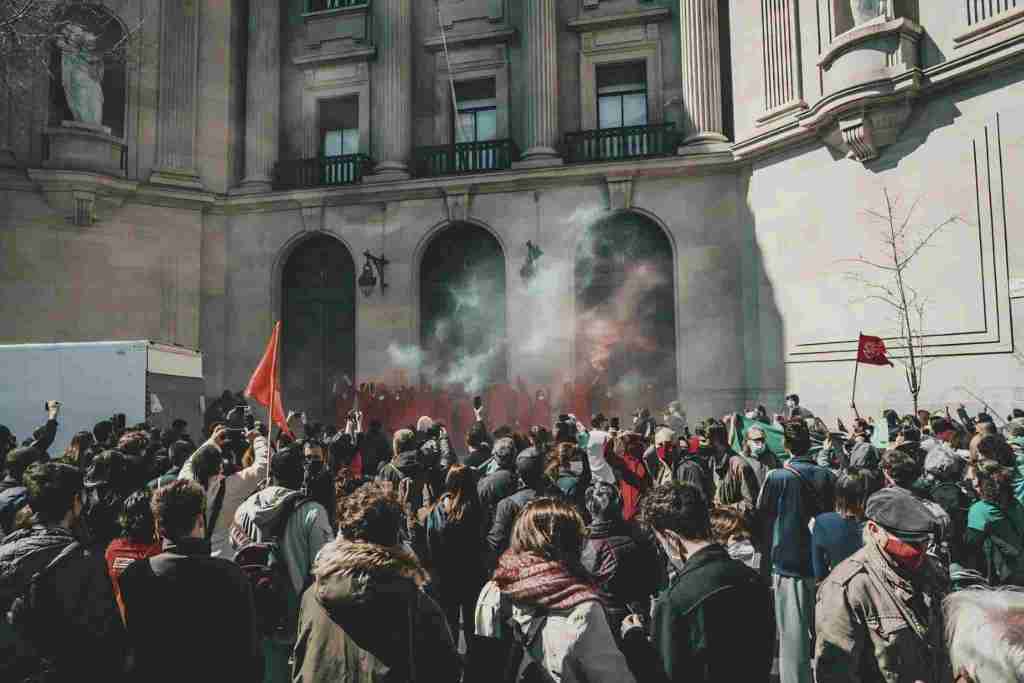Cardinal Arizmendi: Stop, Analyze, Decide!
In a world saturated with information and noise, Cardinal Arizmendi invites us to pause, reflect, and make decisions with meaning and responsibility

Cardinal Felipe Arizmendi, Bishop Emeritus of San Cristóbal de Las Casas and responsible for the Doctrine of the Faith at the Mexican Episcopal Conference (CEM), offers Exaudi readers his weekly article.
FACTS
Information invades and saturates us. Our cell phones never stop ringing or vibrating, day or night; if someone loses it, it feels lost in the air. Many people live at the dizzying pace of everyday life. If you’re not up-to-date with everything that comes through the networks, it seems like you have nothing to talk about, that you’re worthless. Therefore, you have an obsession with being informed about everything, not to become a better person and help solve community problems, but simply to know everything. Almost no one reads long texts and books; only short messages and videos, which follow one another uncontrollably. This is why there is so much mental and behavioral superficiality in adolescents and young people, and also in those of us who are no longer.
Fortunately, some young adults have found meaning in their lives by being selfless servants in their families and communities. They remain single not because they are selfish and complacent, but to be freer and serve. A sister of mine decided not to marry, despite the many opportunities she had, in order to serve my parents, family, and community. She assisted me in my various church roles. Now she is well into her adulthood and suffering from the ailments of her age, but she is a fulfilled and fruitful woman! She sowed much love, and now receives affection and support from everyone.
But there are young people, and not so young people, who pass the years and don’t make decisions about their lives; they never finish their studies; they are eternal adolescents, doing whatever they want, almost always with their daddy’s money. They don’t take responsibility. They don’t want to get married because of any law, least of all the Church’s; their decision is to be free, have money, travel, have fun, and do what their feelings suggest or what the world suggests. Likewise, they are weather vanes at the mercy of the cultural winds. If they ever get married, or get together, they don’t want children, because having them requires dedication, sacrificing time, money, and freedom. Some were accustomed from childhood to be selfish, to only receive and demand what they wanted; they weren’t raised to be co-responsible in household or community work; their parents and grandparents indulged their every whim. What will become of them when they get sick or old! With these young people, what a present and what a future awaits us!
Not to brag, but I decided to become a priest when I was twelve. Of course, at that age, you don’t understand everything it entails. But at 23 or 24, I made that decision for life, and I haven’t regretted it. Most of us adults could agree with the same sentiment, each in their own vocation. Those were different times!
ENLIGHTENMENT
Pope Francis, whose slow recovery we celebrate while still in the hospital, sent a message for the 62nd World Day of Prayer for Vocations, in which he tells young people:
“In our time, many young people feel lost before the future. They often experience uncertainty about their career prospects and, more profoundly, a crisis of identity, which is also a crisis of meaning and values, and which the confusion of the digital world makes even more difficult to navigate.
I want to extend to you a joyful and encouraging invitation to be pilgrims of hope, giving your lives generously. A vocation is a precious gift that God sows in the heart, a call to go beyond ourselves to embark on a path of love and service. You, young people, are called to be the protagonists of your vocation or, better yet, co-protagonists with the Holy Spirit, who inspires in you the desire to make your life a gift of love.
Every vocation, when deeply perceived in the heart, brings forth the response as an inner impulse toward love and service; as a source of hope and charity, and not as a search for self-affirmation.
Dear young people, the world pushes you to make hasty decisions, to fill your days with noise, preventing you from experiencing a silence open to God, who speaks to the heart. Have the courage to pause, to listen within yourselves, and to ask God what He dreams for you. Silence in prayer is essential to “read” God’s call in your own story and to respond freely and consciously.
Recollection allows us to understand that we can all be pilgrims of hope if we make our lives a gift, especially in the service of those who live on the world’s material and existential peripheries. Those who listen to God cannot ignore the cry of so many brothers and sisters who feel excluded, wounded, or abandoned. Every vocation opens us to the mission of being Christ’s presence where light and comfort are most needed. The lay faithful, in particular, are called to be “salt, light, and leaven” of God’s Kingdom through social and professional commitment” (March 19, 2025).
ACTIONS
Young people: If you don’t stop, if you don’t think, analyze, or decide, you will be nothing more than a plaything of life. Be yourself: reflect, analyze the pros and cons, the advantages and disadvantages, not only for the immediate future, but for the years to come. Build your life; don’t let others dictate to you as they wish.
Parents: love your children very much; and therefore, not only give them everything they ask for, but also educate them for family co-responsibility, for various services within the home, and with a broader social dimension toward the community. May they become good servants of others, in their different vocations!
Related

The Beloved’s Fulfillment, the Goal of Love
EduFamilia
30 January, 2026
8 min

The Illusion of the Job Title
Hugo Saldaña Estrada
30 January, 2026
2 min

Cardinal Arizmendi: Weapons and Money Seek to Dominate
Cardenal Felipe Arizmendi
29 January, 2026
3 min

An Interpretation of Human History
Exaudi Staff
27 January, 2026
3 min
 (EN)
(EN)
 (ES)
(ES)
 (IT)
(IT)

